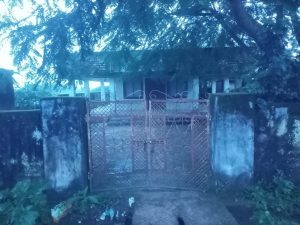Health
Nabarangpur’s Digital Dispensaries Close, Leaving Rural Care in Crisis

Rural healthcare in Nabarangpur district, Odisha, faces a significant crisis as all 25 digital dispensaries, established to enhance medical access in remote areas, have been shuttered. These facilities, which opened in 2017-18, were intended to address the longstanding shortage of doctors and specialists in the region. The closures have left many residents without essential healthcare services.
The digital dispensaries were managed by Glocal Health Care System Pvt. Ltd., a private agency based in Kolkata. Initially, the dispensaries operated successfully in their first two years, treating patients at a cost of Rs 217 per visit. Each dispensary required an investment of Rs 12.5 lakh for equipment, and the company received a monthly operating budget of Rs 8.17 lakh. However, after the contract could not be renewed post-December 5, 2019, the facilities were left unattended, resulting in their current state of disrepair.
The health department spent more than Rs 3 crore on these dispensaries, but the investment now appears squandered as furniture and medical equipment deteriorate without use. Chief District Medical Officer (CDMO) Santosh Kumar Panda confirmed that a committee has been established to address the situation. Official letters have been sent to Glocal Health Care System demanding the transfer of equipment and facilities. If the company does not comply, the district administration may take further action, including breaking locks to reclaim the facilities.
According to the 2011 Census, Nabarangpur has a population of over 2 million, with a significant portion belonging to Scheduled Castes and Scheduled Tribes. The district encompasses 189 panchayats and 894 revenue villages, yet it suffers from a severe lack of healthcare professionals. Currently, out of 68 sanctioned specialist positions, 53 remain vacant. The shortage extends to doctors, with 127 of the 307 sanctioned posts unfilled.
The impact of these vacancies is profound. With 890 health staff positions unoccupied, including crucial roles such as nurses and lab technicians, the remaining healthcare workers are overwhelmed. Many patients are forced to rely heavily on the district headquarters hospital (DHH) for their medical needs, leading to increased pressure on an already strained system.
The situation in Nabarangpur highlights the urgent need for a comprehensive strategy to address the healthcare crisis in rural areas. As authorities work to reclaim the digital dispensaries, the hope remains that these facilities can be reopened and adequately staffed to provide the necessary care to the community. Without immediate action, residents of Nabarangpur will continue to face barriers to essential healthcare services, exacerbated by a shortage of qualified medical personnel.
-

 World2 months ago
World2 months agoSBI Announces QIP Floor Price at ₹811.05 Per Share
-

 Lifestyle2 months ago
Lifestyle2 months agoCept Unveils ₹3.1 Crore Urban Mobility Plan for Sustainable Growth
-

 Science1 month ago
Science1 month agoNew Blood Group Discovered in South Indian Woman at Rotary Centre
-

 Sports1 month ago
Sports1 month agoBroad Advocates for Bowling Change Ahead of Final Test Against India
-

 Sports1 month ago
Sports1 month agoCristian Totti Retires at 19: Pressure of Fame Takes Toll
-

 World2 months ago
World2 months agoTorrential Rains Cause Flash Flooding in New York and New Jersey
-

 Top Stories2 months ago
Top Stories2 months agoKonkani Cultural Organisation to Host Pearl Jubilee in Abu Dhabi
-

 Science2 months ago
Science2 months agoNothing Headphone 1 Review: A Bold Contender in Audio Design
-

 Top Stories2 months ago
Top Stories2 months agoAir India Crash Investigation Highlights Boeing Fuel Switch Concerns
-

 Business2 months ago
Business2 months agoIndian Stock Market Rebounds: Sensex and Nifty Rise After Four-Day Decline
-

 Politics2 months ago
Politics2 months agoAbandoned Doberman Finds New Home After Journey to Prague
-

 Top Stories2 months ago
Top Stories2 months agoPatna Bank Manager Abhishek Varun Found Dead in Well









